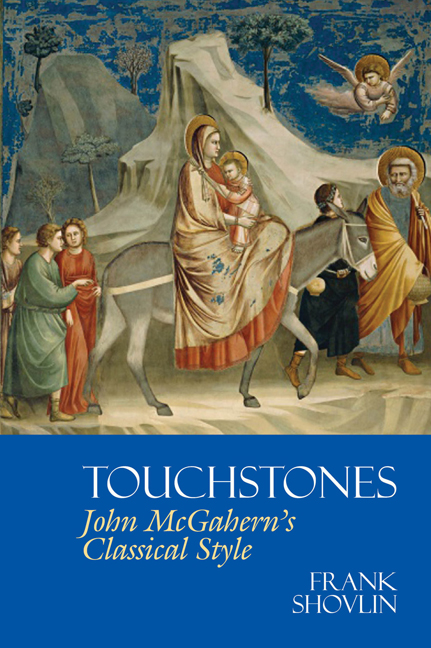Book contents
- Frontmatter
- Dedication
- Epigraph
- Contents
- Acknowledgements
- Touching Stones: Matthew Arnold and the Canon
- 1 We Other Clerks: James Joyce and the Classical Temper
- 2 A Walking Mirror: Stendhal, Horace, Nietzsche
- 3 One Lone Paperback: Tolstoy and Religious Sensibility
- 4 Magic: The Centrality of W. B. Yeats
- 5 Instinct: Douglas Stewart and Sex
- 6 The Fume of Muscatel: Yeats's Ghosts
- 7 Bohemian Rhapsody: Patrick Kavanagh and Generation X
- 8 Absurdity: Camus Comes to Clones
- 9 Aristocracy: Andrew Marvell, W. B. Yeats and the Curse of Cromwell
- 10 The Consolations of Nothingness: William Blake, W. B. Yeats and Prayer
- 11 Deliberate Happiness: W. B. Yeats and the Inner Life
- 12 Stranger in Paradise: Dante and Epic Style
- Conclusion: What Then?
- Bibliography
- Index
5 - Instinct: Douglas Stewart and Sex
from Touching Stones: Matthew Arnold and the Canon
- Frontmatter
- Dedication
- Epigraph
- Contents
- Acknowledgements
- Touching Stones: Matthew Arnold and the Canon
- 1 We Other Clerks: James Joyce and the Classical Temper
- 2 A Walking Mirror: Stendhal, Horace, Nietzsche
- 3 One Lone Paperback: Tolstoy and Religious Sensibility
- 4 Magic: The Centrality of W. B. Yeats
- 5 Instinct: Douglas Stewart and Sex
- 6 The Fume of Muscatel: Yeats's Ghosts
- 7 Bohemian Rhapsody: Patrick Kavanagh and Generation X
- 8 Absurdity: Camus Comes to Clones
- 9 Aristocracy: Andrew Marvell, W. B. Yeats and the Curse of Cromwell
- 10 The Consolations of Nothingness: William Blake, W. B. Yeats and Prayer
- 11 Deliberate Happiness: W. B. Yeats and the Inner Life
- 12 Stranger in Paradise: Dante and Epic Style
- Conclusion: What Then?
- Bibliography
- Index
Summary
Now is their hour, when they wake from that long swoon; Their pale curved wings are marked in a pattern of leaves, Shadowy for trees, white for the dance of the moon; And when on summer nights the buddleia gives Its nectar like lilac wine for insects mating They drink its fragrance and shiver, impatient with waiting.
They stir, they think they will go. Then they remember It was forbidden, forbidden, ever to go out; The Hands are on guard outside like claps of thunder, The ancestral voice says Don't, and they do not. Still the night calls them to unimaginable bliss But there is terror around them, the vast, the abyss.
And here is the tribe that they know, in their known place, They are gentle and kind together, they are safe for ever, And all shall be answered at last when they embrace. White moth moves closer to moth, lover to lover. There is that pang of joy on the edge of dying – Their soft wings whirr, they dream that they are flying.
Douglas Stewart, ‘The Silkworms’‘I write’, explains McGahern, ‘because I need to write. I write to see’. Writing is not, then, about bringing pleasure either to himself or to others. It is an activity drawn from need, an instinctual act. Nor is writing something entirely rational. There comes a time in the composition of any of his works when McGahern has to ‘trust to instinct and strong feeling and imagination’. But what is instinct? It is one of those words we tend to use rather lazily to explain away the inexplicable. How do swallows know the way back from southern Africa to that one Irish byre or barn in which they were born? Instinct, we say. But what is that? As Peter White, the eponymous pornographer's doctor friend in McGahern's fourth published novel declares, ‘If you can tell where instinct ends and consciousness begins you'll make us all our fortunes’. The question of what instinct might be fascinated W. B. Y eats, and he examines its nature in a 1917 essay on what he called ‘Anima Mundi’, the storehouse of images which is ‘scarce separable from what we have begun to call “the subconscious”’.
- Type
- Chapter
- Information
- Touchstones: John McGahern’s Classical Style , pp. 76 - 86Publisher: Liverpool University PressPrint publication year: 2016



